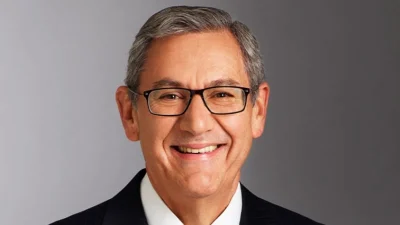Not-for-profits dominate Chant West top 10 lists




|
| Warren Chant
|
Chant West’s top 10 funds and pension products to watch in 2011 were picked based on their overall service offering rather than just fees and investment returns, leading to an almost complete dominance by not-for-profit funds.
There were new entrants in both the top 10 super and pension funds for 2011. The rise of GESB and QSuper rounded out the not-for-profit exclusivity on the super fund list, while AUSCOAL and QSuper joined the top 10 pension products list, which features offerings from Colonial First State and Russell Investments as the only not-for-profit entries.
Because pension members generally have higher balances and require more servicing, funds that give them special attention can receive a higher rating, leading to the inclusion of the two commercial master trusts, said Chant West principal Warren Chant.
Multi-manager investments accounted for 40 per cent of each super fund’s overall rating and short-term investments were not included, according to Chant.
“In assessing a fund’s investments, we focus on the quality of its investment governance, its in-house investment team and asset consultant, and the structure of its investment portfolios,” he said.
The average return for the top 10 super funds over the seven years to September 2010 was 4.3 per cent per annum above inflation, Chant said.
While investments remain important, funds have been improving their all-round offering in the past few years in aspects such as insurance offerings, lower investment fees and an increase in member services in communications and education, he said.
“To be a top 10 rated fund it must be strong in all of the key areas we assess — organisational strengths, investments, fees, insurance (for super members), administration and member services,” Chant said.
Based on seven-year investment returns, QSuper was the top performing fund, returning 7.5 per cent per annum over that period, while AustralianSuper, NGS Super, REST and UniSuper all returned 7.3 per cent.
Looking ahead to 2011, Chant believed EquipSuper, Health Super and QSuper would be the strongest funds, with Chant outlining a high regard for industry funds generally.
“Their strong cash flows allow them to take a long-term view, which typically means they have meaningful investments in unlisted and alternative assets. This gives them additional sources of return, as well as diversification benefits when combined with traditional shares, property and bonds. While they have higher investment fees, they have consistently delivered higher net returns to members,” he said.
Funds were also ranked based on member communication and education for the first time, with relevant and easy to understand Product Disclosure Statements, member newsletters and online calculators scoring points for AustralianSuper, NGS Super and Sunsuper in particular.
Recommended for you
The two funds have announced the signing of a non-binding MOU to explore a potential merger.
The board must shift its focus from managing inflation to stimulating the economy with the trimmed mean inflation figure edging closer to the 2.5 per cent target, economists have said.
ASIC chair Joe Longo says superannuation trustees must do more to protect members from misconduct and high-risk schemes.
Super fund mergers are rising, but poor planning during successor fund transfers has left members and employers exposed to serious risks.











